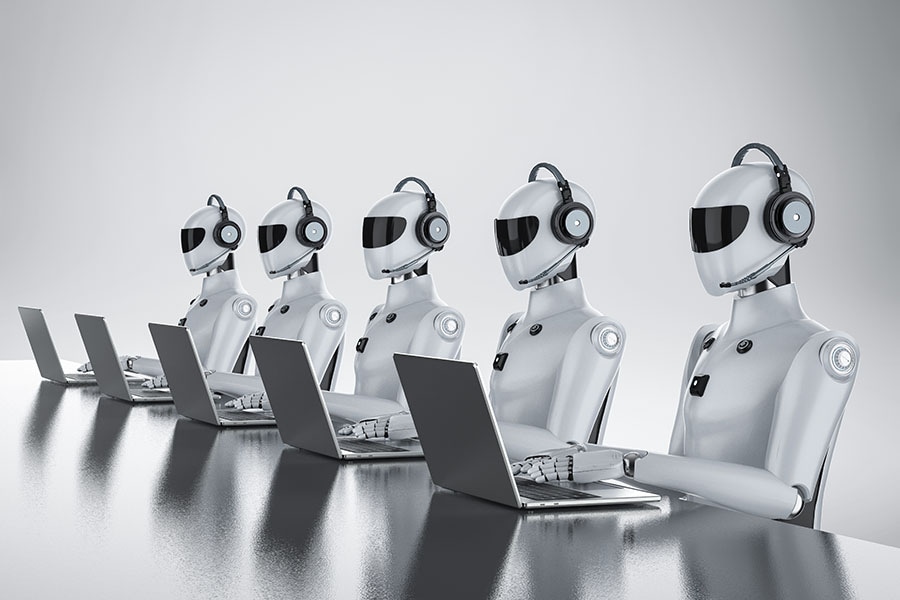
Is AI coming for your job?
In a post-AI world, where an algorithm can draft marketing copy—or even pop songs and movie scripts—anything seems possible. Harvard Business School faculty members discuss how artificial intelligence could reshape how work gets done
 Harvard Business School faculty members share their thoughts below about how AI will reshape the workforce and the skills necessary to succeed in the years ahead. Image: Shutterstock
Harvard Business School faculty members share their thoughts below about how AI will reshape the workforce and the skills necessary to succeed in the years ahead. Image: Shutterstock
The launch of ChatGPT seems to have reignited doomsday fears about artificial intelligence (AI) replacing workers en masse. Are these fears prescient or overblown? A recent survey shows 62 percent of Americans think AI will majorly impact work and jobholders over the next 20 years, yet only 28 percent believe the technology will affect them personally.
Harvard Business School faculty members share their thoughts below about how AI will reshape the workforce and the skills necessary to succeed in the years ahead.
Joseph Fuller: Brace for massive workforce changes
The deep learning-based AI tools that are now being introduced will have a profound impact on the labor market, leading to the eventual elimination of many jobs and the restructuring of many others. The effect will be particularly acute among knowledge workers—those who do what has been traditionally defined as non-routine cognitive work. Many people in such roles have been insulated from automation and globalization. That is about to change.The change is likely to follow a path similar to one a character in Ernest Hemingway’s The Sun Also Rises used to describe his descent into bankruptcy: It occurred in “Two ways … gradually and then suddenly.” Companies will move slowly to deploy generative AI technology like that embodied in OpenAI’s ChatGPT. Harnessing the immense pool of data underlying it will require the development of proprietary machine-learning systems, requiring companies to add talent that is in short supply.
"ONCE COMPANIES LEARN HOW TO EXPLOIT GENERATIVE AI, WE CAN ANTICIPATE RAPID RESTRUCTURING AT MANY COMPANIES THAT INVOLVE SUBSTANTIAL CUTS IN WHITE-COLLAR STAFF."
Historically, companies have asked, “How can this new technology improve the efficiency of our existing processes?” That is an irrelevant construct when considering how to harness generative AI’s capabilities. Processes ranging from negotiating contracts with vendors to developing marketing messages will be redesigned from the ground up in order to exploit the full potential of this new technology.
This article was provided with permission from Harvard Business School Working Knowledge.







